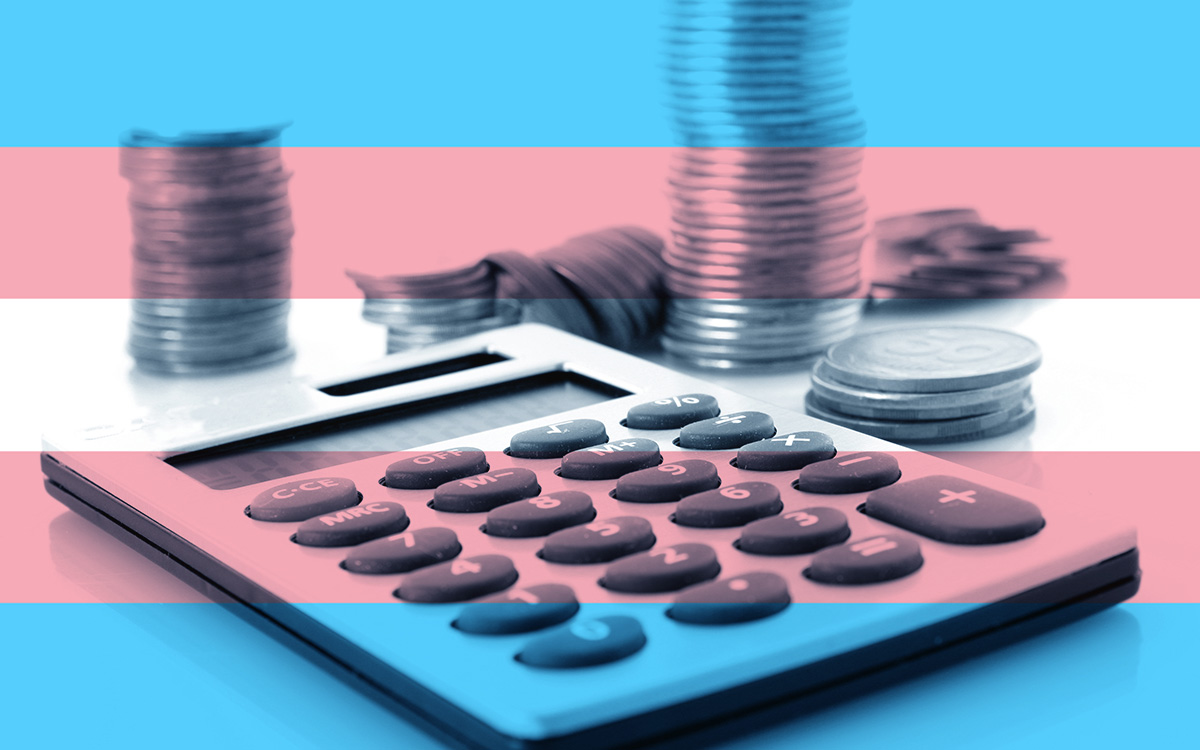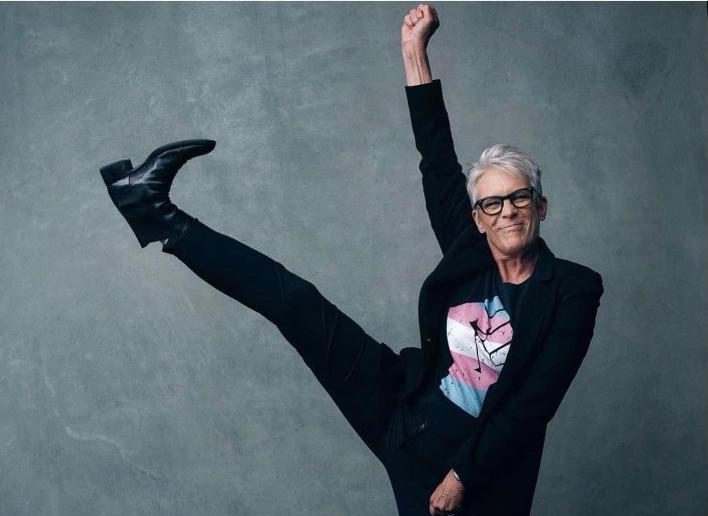Opinions
Reclaiming the word ‘ally’
Let’s not toss out the word; let’s focus on doing allyship right

The word “ally” has started to rub some folks the wrong way. It’s my understanding that some of the reasons why ally has gotten a nasty reputation are that self-professed “allies” either don’t do enough (i.e. they put an “I’m an ally pin” on their backpack and that’s all they do) or they use their power and privilege to speak over the community members they’re supposed to be supporting.
Mia McKenzie, author of “Black Girl Dangerous,” writes: “I will no longer use the term ‘ally’ to describe anyone. Instead, I’ll use the phrase ‘currently operating in solidarity with.’ Or something. I mean, yeah, it’s clunky as hell. But it gets at something that the label of ‘ally’ just doesn’t.” It’s true; “currently operating in solidarity with” is clunky as hell, but you may have noticed that other words have started to pop up to replace ally or to indicate people who offer higher levels of commitment and better-informed actions than the average “ally.” A few examples are accomplice, advocate, and co-conspirator.
I’m absolutely fascinated by this development. I’ve read many articles and blogs about these different terms, trying to understand what they all mean and how they should be applied, and I keep coming back to the same thought: None of these new words would be needed if allyship were being done well. “Ally” is becoming a word with negative implications because allyship is being done poorly by so many. We don’t need any more terms to describe allies or differentiate levels of action and commitment. We need to put our energy into allying better. So, if you consider yourself an ally to the LGBTQ communities, here are some tips to follow that will ensure that your ally efforts are spot on.
• When you’re in LGBTQ spaces, meetings, and events, listen and learn. If you got involved in social justice work to support marginalized communities in creating the change they see as necessary, then you need to let the people in those communities lead the way in deciding what that change should look like.
• Be mindful of the fact that you’re part of the movement, not part of the community. Assume the “A” in “LGBTQIA” stands for asexual, not ally.
• Respect LGBTQ-only spaces. If you aren’t sure if allies are welcome, call and ask.
• When out on your own, do some of the heavy lifting. For example, reach out to the leaders in your school district to advocate for a single graduation gown color, rather than different colors for boys and girls.
• When you mess up (i.e. accidentally say something offensive) thank the person who brings your error to your attention and make an appropriate apology, without making excuses for your behavior or getting defensive. Few people enjoy telling others that they messed up. If someone is letting you know that you made an error, it probably means that they value your relationship, have faith that you’re interested in learning, and believe that you’re capable of listening and changing your behavior. Accept this intervention for the compliment that it is and thank the person for committing to an action that’s no fun for anyone. Then let them know you intend to do better.
• Learn as you go. Try not to get bogged down or discouraged by how much you don’t know. Look up new words, learn about new concepts, and investigate new trends as they arise.
• One final pointer is to realize that there are no hard and fast guidelines for when an ally should step in with action and when they shouldn’t. Allyship is a bit of a balancing act. Whether or not you take action as an ally should depend on the situation and the people involved.
Most folks agree that we should help carry the dirty dishes to the kitchen after dinner. Most folks also agree that we shouldn’t scrub our host’s toilet, even if it’s a mess. But loading our host’s dishwasher is kind of a gray area. Our decision is likely to depend on how well we know the host and social cues we’re picking up from the environment.
The same is true with allyship. Some actions are clearly good choices, for example, suggesting that your doctor’s office update their forms when you see the limited “M” or “F” choices. Some actions are clearly bad choices, for example, speaking over the community members you’re trying to support. And then there are gray areas.
An example of a gray area of allyship is when someone uses the wrong gendered term for (i.e. misgenders) one of your coworkers in a work meeting. In a situation like this, you’ll need to make a judgment call about whether to step in or not depending on several factors. You’ll need to consider factors like how well you know the coworker who was misgendered, whether you think the person will appreciate the support or be made uncomfortable by having attention drawn to the mistake, and how past efforts to support this coworker have been received. You’ll also need to think about who else is at the table during the meeting. Is it all folks that everyone knows and trusts or are there new people at the table? If the latter, safety and confidentiality may be at risk if you speak up.
Whether you choose to say something or not, a great ally action when you encounter a gray area is to check in later, privately, with the person who was affected. You can say something like, “I wasn’t sure how to respond when you were misgendered in the meeting today. If that happens again, how can I best support you?” Communication is key. The next time this situation occurs with this coworker, you’ll know exactly how to respond. If you chose not to say anything in the meeting, you may also want to ask if there’s a role you can play in speaking with the person who messed up. That way you can be proactive in preventing the mistake from occurring again.
In her essay “Fluid and Imperfect Ally Positioning: Some Gifts of Queer Theory,” Vikki Reynolds writes, “I am always becoming an ally. I am continually being woken up to my locations of privilege.” Thinking of the word ally as a verb, rather than who we are, helps us remember that being an ally is about action. It’s not a static identity that we wear on a badge: “Tada! I made it! Pop the Champagne! I’m an ally!” Becoming an ally is a never-ending process.
Let’s not toss out the word ally and replace it with other words that may or may not improve people’s understanding of effective allyship. Let’s simply focus on doing allyship right.
Jeannie Gainsburg is an award-winning educational trainer and consultant in the field of LGBTQ inclusion and effective allyship. Formerly the Education Director at the Out Alliance of Rochester, N.Y., she is the founder of Savvy Ally Action and author of the book, ‘The Savvy Ally: A Guide for Becoming a Skilled LGBTQ+ Advocate.’
Opinions
Unique financial planning challenges for trans community
Overcoming roadblocks in journey to living an authentic life

Approximately 2.6 million Americans identify as transgender, according to the U.S. Census Bureau Household Pulse Survey in 2023. This community faces many financial, legal, and estate planning challenges, resulting in higher rates of financial instability compared to the general population. However, these challenges are not generally understood or even discussed.
At JPMorgan Chase, we’re dedicated to providing awareness and education to help all communities — including members of the LGBTQ+ community — reach their financial goals. Our team at J.P. Morgan Wealth Management recently published a new white paper to offer actionable tips for transgender adults to help them overcome some of the specific obstacles they face with planning.
Here are some key takeaways:
Inaccurate identity documents create a foundational problem
Hundreds of thousands of transgender people in the U.S. do not have a single piece of identification that correctly identifies their gender or chosen name. Many people, including those in the broader LGBTQ+ population, have never thought about what their lives would be like if they lacked accurate identity documents.
Having accurate identity documents is essential for so many aspects of everyday life – applying for school or a job, finding a place to live, exercising the right to vote and boarding a plane. Presenting inaccurate identification in these situations can subject transgender individuals to unfair discrimination and harassment. But correcting name and gender markers on identity documents can be complicated, expensive, time-consuming, and in some cases, impossible.
The U.S. State Department has adopted one of the most simple and progressive policies for correcting gender markers in the world. Since June 2021, medical certification is not required to change the gender marker in one’s passport. Transgender people should consider updating their U.S. Passport book or card immediately and use that document as primary identification. Passport books and cards are valid for 10 years, even if policies change during that time.
Credit issues are common for trans community
Transgender individuals who are able to successfully obtain new identity documents still frequently face credit issues. Unlike changes to one’s last name after a marriage or divorce, informing banks or other creditors of a change to one’s first name on accounts does not automatically cause credit reporting agencies to update that person’s credit file. The credit reporting system can often be problematic for transgender people after a name change, with many reporting that credit files are never updated or that their credit scores decline.
This can create a cascading effect in numerous areas of one’s financial life, and it goes beyond borrowing. Credit files are frequently checked in employment decisions, pricing insurance, establishing utility and phone service and applying to rent a home.
Until policies change, transgender individuals should directly contact each creditor and credit reporting agency and follow each organization’s specific procedures and documentation requests. And they should carefully monitor that the changes are actually made and do not result in a credit score change.
Emergency and end-of-life documents should be carefully reviewed
Transgender people often have special health care needs and face unique forms of disparate treatment in accessing care, and cannot speak for themselves in these circumstances. End-of-life planning is often difficult to think about, but it’s especially critical that this community works with their attorneys and trusted advisors to create customized emergency and end-of-life legal documents.
The people named in these documents who could become decision-makers – typically trusted friends or supportive family members – should be empowered to direct health care providers to meet the patient’s wishes and preserve their chosen name and gender identity, as well as service providers, such as funeral home employees, to honor the deceased’s wishes about their appearance during memorial services.
The laws for these documents are complicated, and they vary depending on the state or territory. If possible, these documents should be prepared by experienced attorneys who routinely work with members of the LGBTQ+ community.
The bottom line
Transgender individuals in the United States face unique financial, legal and estate planning challenges that create roadblocks in their journey to living an authentic life. Careful planning can help mitigate some, but not all, of these obstacles.
JPMorgan Chase & Co., its affiliates, and employees do not provide tax, legal or accounting advice. You should consult your own tax, legal and accounting advisors before engaging in any financial transaction. J.P. Morgan Wealth Management is a business of JPMorgan Chase & Co., which offers investment products and services through J.P. Morgan Securities LLC (JPMS), a registered broker-dealer and investment adviser, member FINRA and SIPC.
Joseph Hahn is executive director of Wealth Planning & Advice at J.P. Morgan Wealth Management.
Opinions
University students have a right to protest
But they must not threaten Jewish students on campus

I support the right of students at Columbia University, and other colleges, to protest. They must understand they are protesting on private space. What I also find interesting is how many of them see their right to protest, and right to free speech.
The First Amendment gives us a right to free speech, but it doesn’t specify what exactly is meant by freedom of speech. Defining what types of speech should and shouldn’t be protected by law, has been left to the courts. Clearly free speech has its limits. Obscene material such as child pornography, plagiarism of copyrighted material, defamation, or threats, aren’t allowed. Also not protected under the First Amendment is speech inciting illegal actions, or soliciting others to commit crimes. Private employers, and universities, are allowed to set their own guidelines as to what speech is allowed for their employees, and on their campuses.
The debate over student protests at Columbia University is not a new one. I remember when the Student Afro Society (SAS) and the basically all-white Students for a Democratic Society (SDS), demonstrated and took over buildings at Columbia in 1968. Some were protesting the Vietnam War, others what they deemed would be a segregated gym in Morningside Heights, and Columbia’s infringement on a minority community. Both legitimate causes. Those demonstrations took a nasty turn when students took over buildings and cut off water and electricity to them. They held a sit-in, in the president’s office, and took a dean hostage. Police were called and in some cases it got violent. We are not at the 1968 stage yet in the current demonstrations, and if outside agitators don’t get involved, it may not get to that.
I agree with some of what the demonstrators are calling for, including having Israel rethink how it is conducting this war, protection for the Palestinian people, and immediately providing them with food and medicine. I don’t agree with their call to support BDS, which is the disinvestment in Israel. BDS is a Palestinian non-violent movement begun in 2005. I also see hypocrisy in what some of the protesters are saying. While they claim Israel is committing genocide in Gaza, which many disagree with, the same people are calling for genocide against Israel by supporting Hamas. It is Hamas’s stated goal to wipe Israel off the face of the earth, “from the river to the sea.”
Calling out Israel for its tactics, is not anti-Semitic. But attacking, and calling out Jewish students on campus, telling them to go back to Poland, which we have seen on video, and making them feel unsafe, is. Then there is the totally outrageous statement, “Zionists don’t deserve to live.” made by Khymani James, one of the student leaders of the Columbia, pro-Palestinian student protest encampment. He made the comments during and after a disciplinary hearing with Columbia administrators that he recorded and then posted on Instagram. I hope the president of Columbia University will be able to negotiate an agreement with the peaceful student demonstrators, including amnesty for some of those students who were arrested, if the students agree to certain parameters for continuing demonstrations. One being they cannot make other students feel unsafe on campus.
I find it abhorrent that House Speaker Mike Johnson has inserted himself at Columbia University, calling for President Shafik to quit. It is a totally inappropriate political stunt. The same goes for Rep. Elise Stefanik (R-N.Y.) who called for the Biden administration to revoke the student visas of all foreign students who are demonstrating. Those students came to the United States for an education, because we are a free country. If they agree to the guidelines of the university, and what is recognized as acceptable free speech, we should continue to welcome them, and allow them to voice their feelings. Again, as long as they don’t threaten others while they do so.
I am Jewish, and a strong supporter of the State of Israel. That support has not stopped me from calling on the Israeli people to rid themselves of Netanyahu, and his right-wing government. I oppose the settlements, and support a real two-state solution. But for that to happen not only will the Netanyahu government have to go, but the Palestinian people will have to reject Hamas. I have not heard the call for Hamas to release the hostages they took, whether those hostages are alive or dead at this time.
I strongly believe in the right to protest, and for Americans, and those here legally, to speak out. In 1969, I came to D.C. to protest the Vietnam War in front of the Justice Department and was tear-gassed. I had a right to protest in a public space. Since that time, I have participated in many demonstrations. Some around the White House supporting rights for the disabled community, LGBTQ rights, women’s rights, and in the ‘80s, demanding the government recognize, and do something about HIV/AIDS. The difference was in these demonstrations, those who disagreed were not threatened. The demonstrations I participated in, took place in public space, not the quad at Columbia University, or other university campuses, which is private space. Students who protest there must understand that.
My hope is none of the peaceful student demonstrators at Columbia, and other institutions, those who do not threaten fellow students, are thrown out, losing the chance to earn a degree. Those students chose to go to their schools because they thought they would get a good education, and believed graduating from those schools would be good for their futures.
Peter Rosenstein is a longtime LGBTQ rights and Democratic Party activist. He writes regularly for the Blade.
Opinions
Successful open relationships take effort
We have options as couples but they all require work

(Editor’s note: This is the second of a two-part feature on open relationships. Click here for last week’s installment.)
Open relationships are often ridiculed as the easy way out of commitment. After speaking with Scott and Kelsey, however, it’s clear they’re anything but easy.
Kelsey reflected on the ups and downs of being open in the past. “Younger me definitely needed it,” Kelsey said. “At the same time, drama came with it as well.”
While Scott and their partner have been together for nine years, it took four before they decided to open their relationship. “It came from the desire for the two of us to meet boys together,” said Scott. “Then we had some really terrible threesomes.”
Drama. Bad threesomes. Yikes – these aren’t exactly selling points for being open. But their experiences underscore something important: open relationships, like all relationships, are actually quite hard. Couples considering openness shouldn’t trick themselves into thinking it will make things easier. In reality, they take a lot of work.
For Scott, those really terrible threesomes led them to opening up further, but with established boundaries. “We came up with ground rules. Use protection. No spending the night at somebody’s house, etc.”
Since Scott and their partner are happy in their relationship, these rules seem to work even if they’ve shifted over time. “Being in an open relationship comes down to being really good at communicating with your partner,” they added. “It’s about communicating and checking in to see where your partner is.”
Open relationships should be for the right reasons
As open relationships began taking off, observers were skeptical for good reason. “In the past, people were just cheating,” said Kelsey. Another comment from Scott echoed this. “I’ve seen open relationships and it felt like one partner was being taken advantage of by the other.”
It turns out there is a fine line between sexual exploration and free passes. While some open relationships walk that line well, others – not so much.
In all fairness, now more than ever it’s difficult to remain monogamous, and one culprit is the rise of accessible hookup culture via social media. Apps like Tinder, Grindr, and dare I say Instagram are facilitating secret sexual connections never seen before. They ushered in a new era of cheating into relationships, alongside a bit of excessive stalking as well.
So, to avoid an atmosphere of mistrust and pain, a natural evolution for couples is to change the rules altogether. Cheating can’t be cheating if it’s allowed, right?
However, once it is allowed, I wondered why these people don’t cut the strings altogether and be single. In response, Chad made an interesting point: people aren’t just afraid of being cheated on – they’re afraid of the appearance of being single as well. We live in flashy times where our online image means everything. The dream is not necessarily having a partner, but showing the world you have a partner. Without that, you otherwise appear lonely.
So, do open relationships ease the pain of cheating and perceived loneliness? As a proud lone wolf I’m not the best person to assess, but based on my observations I can say this: being open works for some couples, but by no means is it a fast pass to being happy. Understanding why you want one is just as important as discovering how to make one work.
With all this said, the undeniable risk – and perhaps downside – of a monogamous coupling is the higher chance of cheating outright. Unfortunately, that’s something Chad knows all too well.
Preferring monogamy is still OK
Chad had dated someone for two years before they married for five. Then, just over a year into the pandemic, his husband informed him he was dating someone else. They separated a few days later.
For Chad this was painful, as it is for anyone, gay or straight, who’s gone through something similar. But when I asked him if this experience shaped his outlook on what he’s looking for, his response came as a bit of a surprise:
“It has not changed my view for or against open relationships,” he said. “I learned a lot in my marriage. It takes a lot of love, trust, and communication, which at times can feel like work. It also takes two; one can’t carry the relationship. I want to date someone who wants to be in a relationship with me.”
My heart swells hearing that, for even after experiencing the deepest kind of hurt, Chad searches for his one and only. Why? Because for him, the love he’s looking for is worth the wait. It’s a beautiful sentiment that makes so-called hopeless romanticism the raddest feeling in the world sometimes.
More importantly, Chad doesn’t let fear alter his view on love, and to me that’s the most important lesson of this article. Love always comes with risks, and lowering your standards to reduce them never really pans out, does it? The best we can do is to be ourselves.
By the way, this is a lesson I should also apply. My main hesitation toward an open relationship is that I’m a jealous bitch, and I fear that jealousy will never go away. Yet this can be hard to admit when everyone around you is propping up a culture where open is supreme and jealousy is immature.
When I brought this up to Kelsey, she pushed back with a simple question: “Do you think jealousy is a bad thing?”
This caught me off guard. “I’m not sure,” I replied. “Do you?”
“Jealousy is a natural, human emotion,” she said. “It’s what you do with it that matters.”
So, maybe my goal is not to suppress my jealousy but rather be upfront about it. If it’s part of me, I should own it, then ideally find someone who loves me regardless.
Changing your mind is OK, too
In gay man speak, I was a top for my first seven years before I embraced bottoming. For some, they’d be shocked to hear it. Yet maybe no one should be surprised, for as we all know sexuality is fluid, and this applies to more than just your orientation. Your sexual preferences can shift over time, too, and this will inevitably affect your relationships.
This was the case for Scott and their partner. “When we first started dating, we did not want to be open,” they mentioned, “but as our relationship grew, we decided to reevaluate that.” Meanwhile, Kelsey went the opposite direction – she was open back in the day but chooses to be closed now.
Even Chad remains open to being open. “I’m not opposed to an open relationship, but I feel like it would take more work. I just don’t see myself starting a relationship open. The first few years there is a lot of learning about each other.”
In a world of shifting preferences, the best we can do is reflect on what we want and be honest about it. Life is a process of discovering who we are, and damn is it messy. So, perhaps I should cut some slack to the couple trying things out. And perhaps they can cut me slack for not understanding their rules.
For the couples: remember, a solid relationship is not only about meeting the needs of your partner, because your needs matter, too. The best relationships, open or closed, strive to find that balance.
For those still searching: remember that love is more than just that thing, that connection, that spark. In fact, love is so complex that the “spark” is just one of many factors, alongside timing and how you want to be loved, that come together and form an imprint as unique and special as the person you want to be with.
In this sense, open and closed relationships aren’t diametrically opposed but rather complimentary, a sort of yin and yang where both become better because the other option exists. Today, we have options as couples, and that’s significantly better than abiding by rules because we assume that’s how it must be.
And that feels right. Because regardless of whether you’re more a Chad or a Scott, the truth is: I feel lucky to have both.
(Writer’s note: A big thank you you to Chad, Scott, and Kelsey for allowing me to share their stories.)
Jake Stewart is a D.C.-based writer and barback.


















